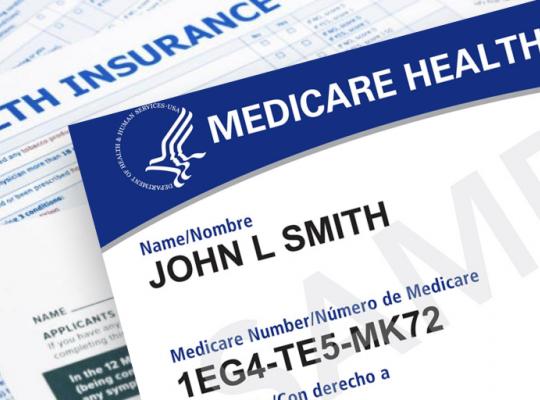Does Medicare Cover Dental Implants?
As you get older, some things are expected to be more expensive in terms of medical bills. Dental care is one of those things, and even though many people have a significant focus on keeping their teeth and gums healthy, they are still likely to have costly dental needs at some point in their lives. Having dental insurance coverage helps to offset some of the costs that can come your way. When people consider getting Medicare coverage, there are often many questions about which dental services are covered.
Like many other types of plans, Medicare insurance can seem pretty complicated. People need to research to know if Medicare coverage helps cover the expenses of dental implants. For the most part, dental needs are not covered in Original Medicare Part A and Part B policies. This includes not including coverage for things like oral examinations, routine cleanings, fillings, crowns, and other things as well. In this article, more information will be revealed in terms of what is covered, what is not included, and where dental implants fall.
Does Medicaid Cover Dental Implants?
Medicare is a health insurance program through the federal government that people who are age 65 and above are eligible for. Also, people with disabilities or that meet other requirements can also be covered. There are four different types of Medicare coverages, including Medicare Part A, Medicare Part B, Medicare Part C, and Medicare Part D. In most cases, Medicare Parts A and B does not cover routine dental services, nor does it cover extractions, restorations, or implants. There are, however, some cases where Medicare Part A and Part B will cover dental services. This is when the care is medically necessary.
An example would be for damage and expenses due to oral cancer, the fracturing of a jaw, or for examinations before certain types of surgeries. Medicare also covers dental related hospitalizations. For example, if you get a dental infection and need an extraction because of it, the extraction will be covered. A replacement of the extracted tooth, however, will not be covered.
Medicare Part C, also called the Medicare Advantage Plan, has some additional benefits that include vision care and dental care. Costs can vary depending on your location, and more information about what is covered in terms of dental services can be discussed with your insurance plan provider. Different plans can cover different things.
For people under the age of 21, and who are eligible for Medicaid, the Early and Periodic Screening Diagnostic and Treatment benefit is required. This is designed to help provide awareness and early diagnosis of medical conditions. This way, medical conditions can be caught early and treatment can be provided. This includes a wide array of services, including dental services. Medicaid may cover the cost of implants as a replacement for permanent teeth. That said, it is not likely that Medicaid coverage will help with the costs of dental implants. The program is designed to cover more basic treatments like tooth extractions. In some cases, partial or full dentures can be provided in this program.
Medicaid also does not often cover the cost of fixing a bridge. It exists to help provide essential medical services for people who have low incomes. In many cases, it will completely cover the costs of services, but this benefit is usually reserved to the least expensive alternative treatments, not always the best possible treatments. Each state has different laws when it comes to what is required in terms of coverage.
Are There Dental Insurance Options Outside Of Medicare?
There are dental insurance options outside of Medicare, which you will need to pay for to obtain coverage. In some cases, it is beneficial to get a dental insurance plan even if you have Medicare Part C, due to not all Medicare Part C plans covering every person’s unique needs. Keep in mind that some dental insurance plans have network restrictions, so it is beneficial to research which dental insurance companies are servicing your area.
Another option that people utilize is dental discount programs. Dental discount programs appear when a network of dental care providers team up to offer lower rates for program members. These types of programs are not available everywhere, and often cost less than insurance plans. Make sure to compare the dental insurance plans, Medicare Part C options in your area, and dental discount programs to determine which is best for your situation.




Comments